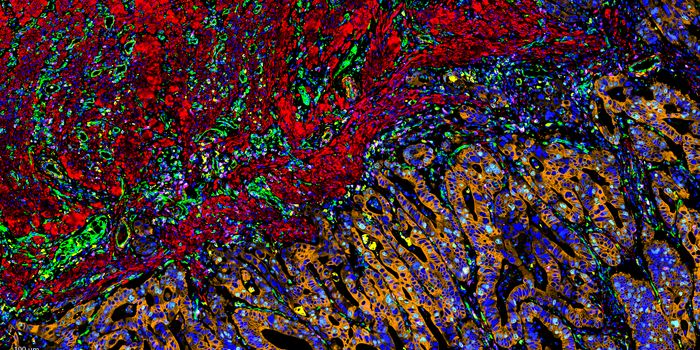After earning priority review status, the French-based pharmaceutical company Advanced Accelerator Applications just received
FDA approval for a new agent to image neuroendocrine tumors (NET). Marketed under the name Netspot, the kit prepares a radioactive agent that helps doctors spot and treat the rare tumors. Outside of the U.S. Netspot is known as Somakit-TATE.

"Use of advanced imaging techniques to detect rare neuroendocrine tumors at an early stage in patients is critical," said Libero Marzella, director of the Division of Medical Imaging Products in the FDA's Center for Drug Evaluation and Research. "Netspot provides another diagnostic tool whose results will help clinicians determine the location and extent of the tumor. This information is important for planning the appropriate course of therapy."
Neuroendocrine tumors (NETs) form from abnormal neuroendocrine cells, which are hormone cells found throughout the body, especially in the lungs, stomach and intestines. This tumor type is rare, but still affects over 47,000 people in the US and European Union annually. Sometimes benign but sometimes cancerous, the tumor can lurk undetected for years and delay diagnosis and treatment. Thus with surgery, chemotherapy, and/or radiotherapy interventions, the five-year survival rate still hovers between 50 to 60 percent.
Netspot is a diagnostic solution to detecting NETs. The single-dose kit prepares a radioactive substance, known as gallium Ga 68 dotatate, as an injectable. This radioconjugate has the capacity to bind to somatostatin receptors that are present on the hormone-producing NETs. Then, positron emission tomography (PET) imaging reveals the locations of these tumors. Uptake of the Ga 68 dotatate also reveals the density of the tumors. From a chemical affinity perspective, Ga 68 dotatate binds to the somatostatin receptors much stronger than the body’s somatostatin hormone. This allows for clear and accurate visualization of the tumors, if they are present.
The new intervention has already undergone three clinical trials, in which its safety and efficacy was stringently tested. In one of the trials, the company compared Netspot against standard imaging techniques and demonstrated that Netspot performed better. They reported no adverse reactions from Netspot.
Following the approval, the company plans to make Netspot available to doctors as soon as possible. They note that although NETs are designated as rare tumors, otherwise called an “orphan disease,” the incidence of this tumor has grown over 500 percent over the past 30 years. As such, making better diagnostic tools available for the detection of these tumors can yield better outcome for the patients involved.
Additional source:
Advanced Accelerator Applications press release
 "Use of advanced imaging techniques to detect rare neuroendocrine tumors at an early stage in patients is critical," said Libero Marzella, director of the Division of Medical Imaging Products in the FDA's Center for Drug Evaluation and Research. "Netspot provides another diagnostic tool whose results will help clinicians determine the location and extent of the tumor. This information is important for planning the appropriate course of therapy."
"Use of advanced imaging techniques to detect rare neuroendocrine tumors at an early stage in patients is critical," said Libero Marzella, director of the Division of Medical Imaging Products in the FDA's Center for Drug Evaluation and Research. "Netspot provides another diagnostic tool whose results will help clinicians determine the location and extent of the tumor. This information is important for planning the appropriate course of therapy."







